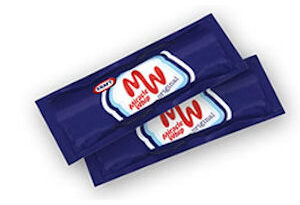Strategies to Prevent the Development of Dysphagia
Dysphagia, the difficulty in swallowing, can significantly impact an individual’s quality of life and nutritional well-being. This condition can arise from various causes, such as aging, neurological disorders, or even the side effects of certain medications. However, there are several strategies that can help prevent the development of dysphagia or manage its symptoms effectively.
 Regular Exercise and Muscle Strengthening
Regular Exercise and Muscle Strengthening
Engaging in regular exercises that focus on muscle strengthening can contribute significantly to preventing dysphagia. Stronger throat and neck muscles are more capable of propelling food and liquids down the esophagus efficiently. Simple exercises like neck tilts, head turns, and chin tucks can target these muscles. Additionally, practicing good posture can also aid in maintaining the proper alignment of the throat muscles for effective swallowing.
Maintaining Adequate Hydration and Nutrition
One key strategy to prevent dysphagia is to ensure proper hydration and nutrition. Incorporating a well-rounded diet abundant in vitamins, minerals, and fiber can promote the overall health of the throat and muscles. Adequate hydration also keeps the mucosal lining of the throat moist, facilitating smoother swallowing. For those already experiencing mild dysphagia, incorporating products like Simply Thick, a food and beverage thickener designed for people with swallowing difficulties, can help improve the consistency of liquids and foods, making them easier to swallow.
Mindful Eating Habits
Adopting mindful eating habits can play a pivotal role in preventing dysphagia. By eating at a leisurely pace, opting for smaller bites, and thoroughly chewing food, the body is given ample time to properly prepare for the process of swallowing. This deliberate approach gives the muscles involved in swallowing ample time to coordinate and propel the food or liquid down the esophagus, reducing the chances of discomfort or difficulty. On the flip side, rushing through meals increases the probability of choking or aspiration, a scenario where food or liquid enters the airway rather than the esophagus, potentially leading to serious respiratory issues. Practicing mindful eating not only contributes to effective swallowing but also facilitates proper digestion and absorption of nutrients, fostering overall digestive health and well-being. By fostering a mindful connection with each bite, individuals can savor their meals and nourish their bodies while safeguarding against the development of dysphagia.
Managing Underlying Health Conditions
Preventing dysphagia often involves addressing underlying health conditions that could contribute to its development. Chronic conditions like gastroesophageal reflux disease (GERD) can cause irritation and inflammation in the esophagus, potentially leading to swallowing difficulties. Managing GERD through lifestyle modifications, medication, or surgery, if necessary, can help prevent the progression of dysphagia. Similarly, neurological disorders like Parkinson’s disease or stroke can impact the muscles involved in swallowing, making early intervention and proper treatment crucial in preventing dysphagia.
In conclusion, preventing the development of dysphagia requires a multifaceted approach that encompasses proper nutrition, muscle strengthening, and mindful eating habits. Through adherence to a well-balanced diet, consistent participation in physical activities, and mindful attention to eating habits, individuals can greatly diminish the chances of experiencing swallowing difficulties. Additionally, managing underlying health conditions that may contribute to dysphagia is essential for overall throat and muscle health. Products like “Simply Thick” can also provide practical solutions for those already dealing with mild dysphagia. Ultimately, a proactive approach to throat and muscle care can lead to improved quality of life and overall well-being.









This disease sounds scary!! I hate to choke! I choke when I swallow pills This sound’s something like Lou Gehrig’s disease. That disease is just as horrible. I try and stay hydrated too. I’m a Diabeti. It’s horrible to have dry mouth!